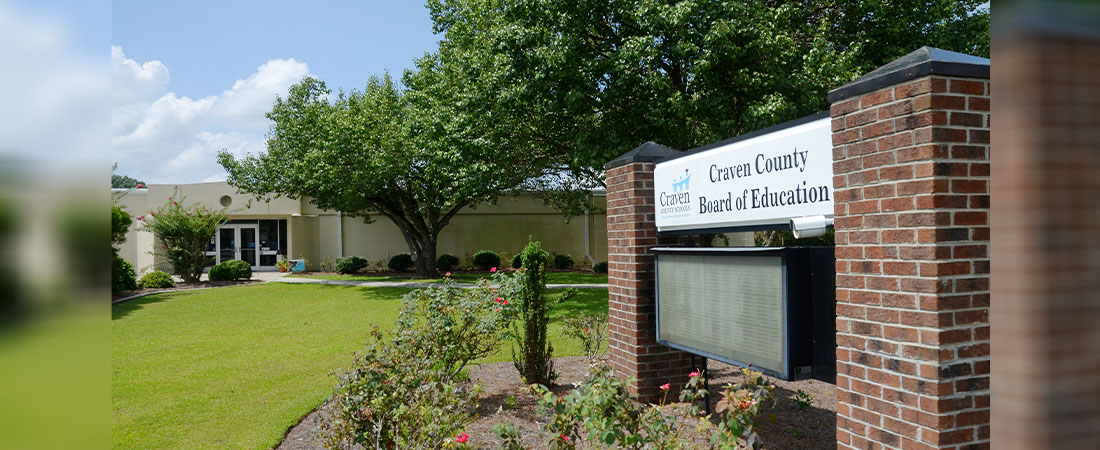
A proposed change to the policy governing parent’s ability to inspect and object to education materials in Craven County schools would give new power to the district’s media technology advisory committees.
During their August 16 meeting, the Craven County Board of Education held the first read through of proposed updates to Policy Code: 3210 Parental Inspection of and Objection to Instructional Materials. The changes would effectively remove decisions that could once be made by school principals and place them solely in the hands of media technology advisory committees.
The current policy states that parents may submit an objection in writing to the principal regarding the use of particular instructional materials, after which the principal may establish a committee to review the objection. Under the proposed changes, the principal would be required to have the school’s media technology advisory committee (MTAC) review any objections submitted by parents. If the school’s MTAC determines that any material violates constitutional or other legal rights of the parent or student, the school MTAC shall either “make a decision to remove the material from instructional use or to accommodate the particular student and parent.”
If an objection made by a parent or student is not based upon constitutional or legal rights, the proposed change would give the committee, not the principal, the right to accommodate the objection after considering: the effect on the curriculum; any burden on the school, teacher, or other students that the accommodation would create; and any other relevant factors.
“Books and other instructional materials may be removed from the school media collection only for legitimate educational reasons and subject to the limitations of the First Amendment,” the policy states.
The challenged material would be kept in use during the review and appeals period unless the principal determines in collaboration with the superintendent that continued availability and use of the material is likely to cause “serious disruption of the educational process and alternative means of avoiding disruption would not be effective.”
The proposed updates to the policy add language stating that if a parent objecting to the use of instructional materials is dissatisfied with the decision of the school’s MTAC, the parent would have the option to submit a written request for a review of the recommendation to the superintendent within one week of receiving the decision. The superintendent would then submit the request to the district MTAC, which would review the decision.
After completing the review, the district’s Media Technology Advisory Committee would provide its recommendation to the superintendent.
Under the proposed plan, the district MTAC would be drawn from the following pool of individuals:
-Directors of instruction connected to grades K-5, 6-8 and 9-12.
-The Director of Digital and Blended Learning.
-The district media specialist.
-A media coordinator, principal, teacher, and parent from an elementary school, middle school and high school or early college.
-Two elected members of the Board of Education appointed by the Chair.
The changes to Policy Code: 3210 would also remove a section that states, “While input from the community may be sought, the board believes professional educators are in the best position to determine whether a particular instructional material is appropriate for the age and maturity of the students and for the subject matter being taught.”
Board member Jennifer Dacey said under the proposed changes the District MTAC would be the “appeal of last resort.” Both Dacey and BOE member Naomi Clark were recently added to the committee.
During past meetings Dacey has said she believes there are books in the school system that “fit the definition under the state obscenity statute.”
“If I were to hand these materials to a child outside of one of our schools I could rightfully be prosecuted for doing so,” she commented at the BOE’s March 16 meeting.
According to Superintendent Dr. Wendy Miller, both Clark and Dacey are currently conducting a review of supplemental materials found in the school system’s media centers. If the review yields materials that the board committee members would like to recommend to the whole board for action, those will come to the entire board in open session for discussion and a decision, she said.
By Todd Wetherington, co-editor. Send an email with questions or comments.

